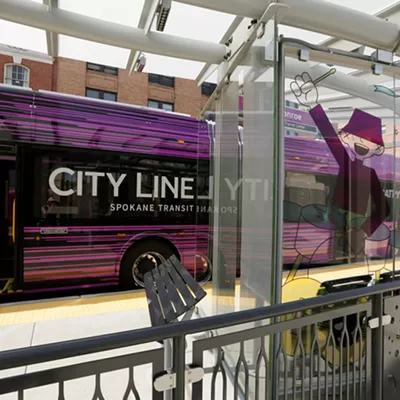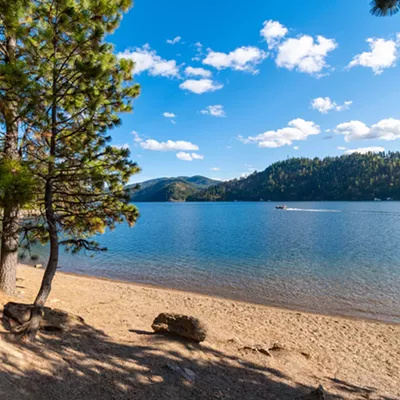Deep in the guts of central Idaho stand the White Clouds — a string of picture-perfect peaks and fish-laden lakes situated high above and far away from the political winds that have swirled around them for the past 40 years.
On August 7, President Obama's signature on the Sawtooth National Recreation Area and Jerry Peak Wilderness Additions Act stilled those winds. This compromise, approved unanimously by both houses of Congress, awarded wilderness status to 275,665 acres of federal land. The sum of the three new wilderness areas totals 431 square miles. That's a lot of land, but it's not as much land as we wilderness advocates wanted. The package offers just enough to meet the definition of compromise — no one on either side is completely happy, but everyone's pleased to have the battle, if not completely won, over and done.
For many years, my husband Scott and I backpacked from lake to lake over the trails of the White Cloud range. Once we followed our rancher friend John Peavey and a gaggle of fellow wilderness lovers into a secret off-the-map lake. It was a magical find, carrying all the qualities of wilderness we embrace — far from civilization, traffic and noise; surrounded by sweet-smelling pine and fir trees; endless space and boundless calm. Add to that the sheer joy of discovering a hidden treasure.
Not so joyous was the next time we tried to find this secret lake after a late start and a long walk in the dark before admitting we had lost our way. What followed was a night of uncomfortable sleep on uneven, unstable ground by the trail, proving that all wilderness adventures have their ups and downs.
White Clouds first made headlines as far back as Idaho's 1970 gubernatorial race. A young Democratic legislator, Cecil D. Andrus, in a race against incumbent Gov. Don Samuelson, attacked Samuelson for opening the door to molybdenum mining in the White Clouds. Andrus introduced the voting public to Castle Peak, a towering and photogenic mountain spire, which immediately became the iconic symbol of the threatened area. Andrus, aided by Castle Peak, won the election for governor by 10,000 votes.
Molybdenum, by the way, is not a word you need to remember; it's a metallic element that alloys with iron to make super-strong steel. It is not rare or in short supply and definitely was not worth devastating Castle Peak for.
The long-suffering hero of this story, Republican congressman Mike Simpson from southeastern Idaho, has labored for 15 years to solve the problem of the White Clouds.
With little question, a legislated wilderness designation is the priority of choice by conservation groups. Year after year, Simpson has unrelentingly sought the compromise that would satisfy all sides of the wilderness debate. According to Rick Johnson, executive director of the Idaho Conservation League, over the past decade Simpson has submitted nine separate bills designating different borders for the Boulder-White Clouds.
As you might have noticed, Congress has been remarkably dysfunctional in recent times. Furthermore, setting aside wilderness is not at the top of many legislators' priority lists. It is understandable that advocates of the Boulder-White Clouds Wilderness turned to President Obama for the alternative to wilderness, a presidential proclamation creating a national monument.
With Cecil Andrus, the White Clouds Council, the Idaho Conservation League and other conservation groups in agreement, a grassroots campaign was started to convince President Obama to designate a monument. Along the way, Simpson asked the president for a six-month window to make one last try at getting a wilderness bill through Congress.
The monument crusade provided the perfect lever to bring wilderness opponents back to the table. A presidential monument would have included far more land and more restrictions than a wilderness designation. However, a monument is at the mercy of presidential whim. The next president or president after next could wipe the protection off the map.
Wilderness opponents also vehemently opposed the establishment of a monument. They probably didn't want any winning mark of Obama's presidency left on the Idaho landscape.
Doing whatever it took to quiet the opposition, Simpson got his wilderness bill through the House of Representatives. In the Senate, Idaho Sen. Jim Risch picked up the charge and corralled the various opponents into agreeing that a much smaller wilderness was better for them than a presidentially created monument. And Risch pushed it through.
Along with many others, I will mourn quietly the loss of many areas in the Boulder-White Clouds to noise-spitting vehicles. But I am very grateful to Congressman Simpson for hanging in there until the best possible solution appeared. Now Castle Peak can keep its molybdenum forever! ♦


















